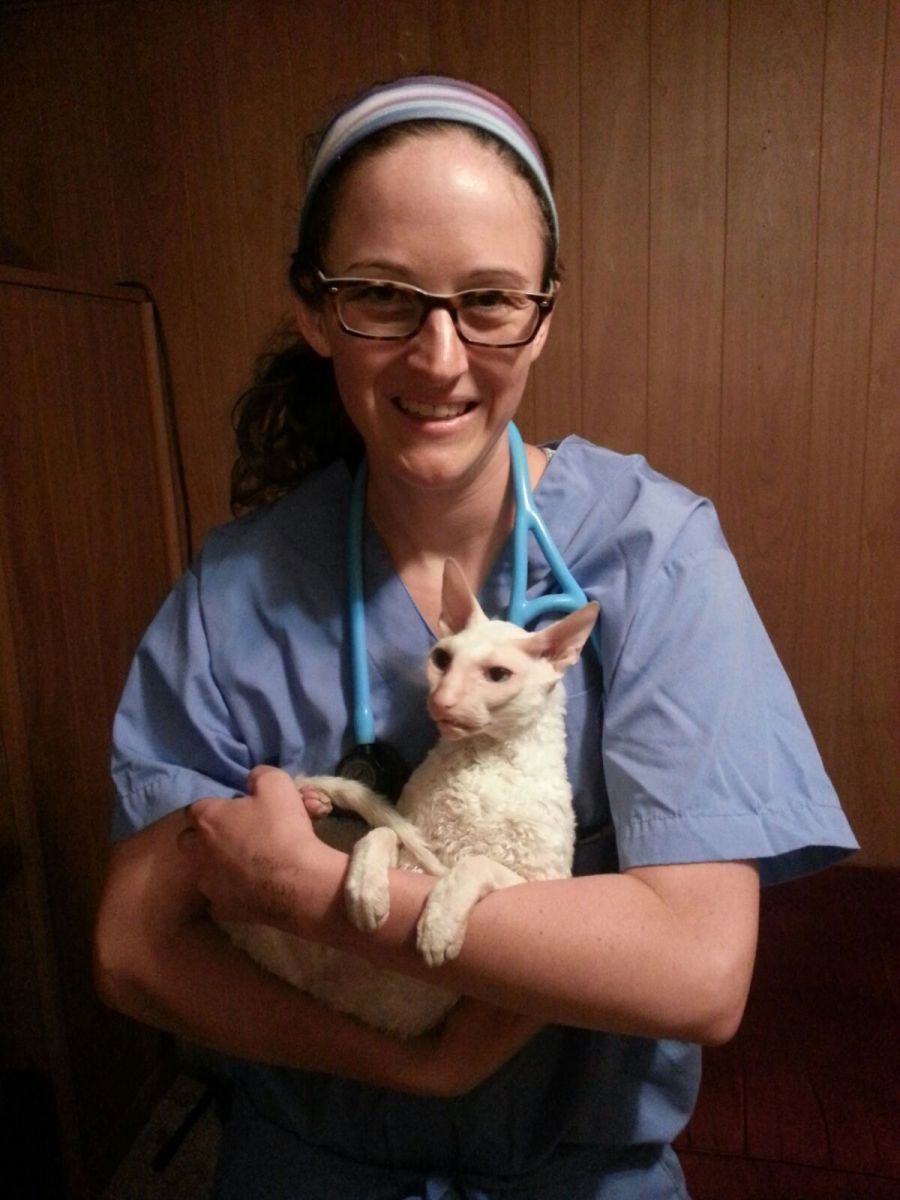
Cats may soon benefit from a new student research project at the Ontario Veterinary College (OVC), University of Guelph, aimed at developing a better understanding of how chronic kidney disease, and its progression, might affect the interpretation of blood test results for pancreatitis. Lipase, a pancreatic enzyme responsible for breaking down fats, is measured as a test for pancreatitis, but it is believed that it may also be affected by kidney disease.
Ellen Everson, OVC 2018 student veterinarian recently won a top prize for her summer research project in this area - the Comparative Gastroenterology Society Abstract Poster Presentation Award - at the 2016 American College of Veterinary Internal Medicine (ACVIM) Forum this past June. The competition for these awards is tough, and places undergraduate research, like Ellen’s, on par with the work of residents and senior clinicians and faculty from other universities across North America.

Ellen Everson with her ACVIM poster
Veterinarians know cats to be very stoic and often only show subtle signs of pain, such as slight reductions in activity level and appetite. Studies show that these behavioral changes can result from a wide variety of sensations that are different from pain such as nausea, fatigue, and even fear or stress – creating a real challenge for veterinarians to pinpoint the major source of the problem when our feline friends present as feeling "off".
“In these instances, analysis of a general blood panel can help give veterinary teams the information that patients cannot such as 'it’s my digestive system that's giving me trouble', or 'there is a problem with my kidneys '.” Ellen explains.
Chronic kidney disease affects approximately 30 per cent of cats over the age of 12, and up to 80 per cent of cats in the 15-20-year-old age range, making diagnosis of pancreatic disorders even more difficult as a cat gets older. Ellen says: “A better understanding of how chronic kidney disease and its progression might affect the interpretation of other blood test results is important information to know.”
Ellen’s research is part of a broader study led by Dr. Anthony Abrams-Ogg and funded by OVC Pet Trust. Abrams-Ogg’s research aims to better characterize the wide range of signs caused by, and the usefulness of, specific diagnostic tests for pancreatitis in cats.
The value summer students like Ellen bring to the University of Guelph researchers is beneficial for all. “Working with young and aspiring veterinary scientists goes well beyond a mentorship role,” says OVC’s Dr. Anthony Abrams-Ogg, who is the advisor on Ellen’s project. “The work our students provide genuinely helps further our core research."

Ellen with her cat, Mister White
In the present study, early results indicate that elevated lipase in a cat with insufficient kidney function should not automatically be attributed solely to decreased kidney function. Often, the presence of elevated lipase in a blood test could in fact indicate pancreatitis, which would call for a different treatment plan.
For cat owners, the most important impact of this work will be the optimization of appropriate individualized care plans, says Ellen.
“Ultimately, we hope our research will have practical applications and help the practicing clinician with the interpretation of blood tests for pancreatitis that have been performed on a cat with kidney disease, in order to prioritize the acute, as well as long term, management of the patient.”

